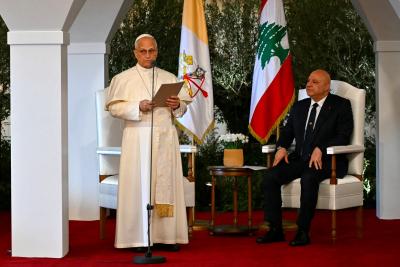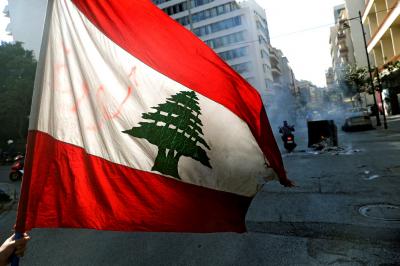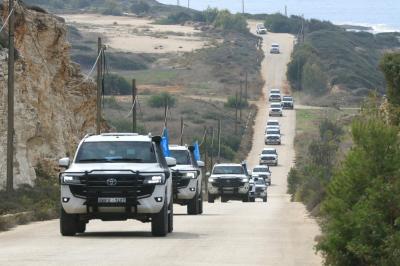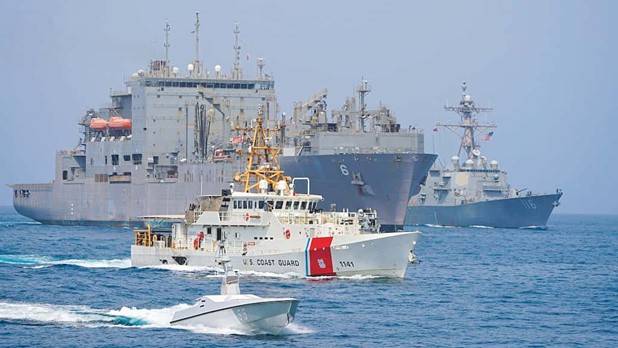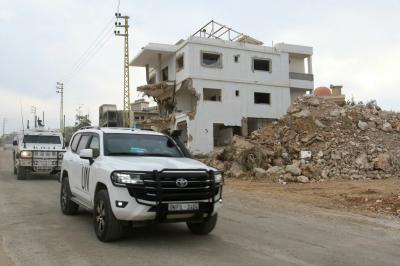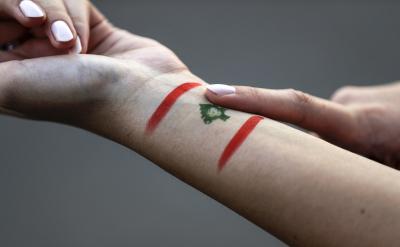Tehran and Jerusalem are waging a covert war through clandestine operations, cyberattacks, and targeted assassinations. The mullahs are increasing their calls for the destruction of the Jewish state, whose leaders view Iran as an "existential threat." The possibility of an armed conflict resurfaces.
Valeurs Actuelles
On June 9, during an interview with the British channel Sky News, Benjamin Netanyahu stated, "Iran has openly committed to repeating the Holocaust and exterminating the six or seven million Jews of Israel." "We will not stand idly by," he warned, adding, "Israel will do whatever it takes to defend itself against Iran." And last week, while he was at the scene of an attack carried out by two Palestinians near Hebron, the Israeli leader once again pointed the finger at Tehran's responsibility: "We are in the midst of a terrorist offensive that is encouraged, directed, and financed by Iran." Another outburst from the Israeli Prime Minister against the mullahs' regime? Not quite. For the past ten months, Israel has been facing a resurgence of cyberattacks and attacks sponsored by the latter.
In February, the Technion, a technology institute based in Haifa, was the target of a hacking operation attributed to Iranian hackers. In April, the Jewish state was the target of several terrorist attacks on its border with Lebanon attributed to the pro-Iranian Hamas and Hezbollah. On June 22, Cypriot and Greek services, in collaboration with Mossad, thwarted another attack against Israeli citizens on the island of Cyprus, orchestrated by the Iranians.
Far from denying the involvement of its agents, Ali Khamenei, the supreme leader of the Islamic Republic of Iran, upped the ante four days later by calling on his troops to "intensify attacks against Israel." He explained in a message relayed on Twitter: "The growing authority of resistance groups in the West Bank is the key to bringing the Zionist enemy to its knees." A clear call to terrorism.
Mossad intensifies targeted assassinations
So, for the past eighteen months, Mossad has been intensifying targeted assassinations against senior officials of the Revolutionary Guard, the real armed wing of the Iranian regime, seen as the main threat. In March 2022, two of their officers were killed in an Israeli raid in Syria. In January 2023, another was shot dead in front of his home in Tehran...
An intelligence source, who is well-versed in the matter, explains: "It's a war game that Iranians and Israelis are playing. All it takes is an attack against the strategic interests of the Islamic Republic launched by the IDF in Lebanon, and immediately it is ready to retaliate even in the waters of the Persian Gulf where the Revolutionary Guard sends drones against Western commercial ships. Mossad, for its part, has contacts in Iran that allow it to respond effectively. But these actions are in the realm of the war between secret services. And they mainly fuel the provocations that Tehran is accustomed to."
The fact is that since 1979, Iranian leaders have consistently used incendiary rhetoric against Israel, denying the Holocaust and calling for its eradication. Nothing new at first glance, except that the tension between the two countries seems to be at its peak today. The reason for this escalation? Since September 16, 2022, the mullahs' regime has been experiencing an unprecedented wave of popular protest. With inflation nearing 60%, more than half of Iranians struggling to find a job, while two-thirds of the country is facing water stress and access to drinking water is becoming scarce in some provinces. The population also denounces the endemic corruption that prevails at the top of the state, with several dignitaries involved in money laundering, arms trafficking, and drug trafficking. Faced with a major internal crisis, the weakened Iranian government thus hopes to "unite" the Iranian people against its "best enemy."
"It should be noted that the Iranian population has nothing against Israel," moderates Amir Hamidi, a former Iranian-American DEA agent (the American anti-drug agency), considered one of the top experts on the Islamic Republic of Iran. "The Iranian government, under the leadership of Supreme Leader Ali Khamenei, has always expressed strong opposition to the existence of the Jewish state, calling for its destruction. This stance is rooted in the ideological principles of the Islamic revolution and the perception of Israel as an illegitimate entity occupying Palestinian land. Iran has therefore provided extensive support to various Palestinian militant groups such as Hamas and Islamic Jihad, which oppose the peace process with Israel and have engaged in armed resistance. This includes financial aid, military training, and the provision of weapons. Iran also supports other regional players like the Lebanese Hezbollah, which is seen as a significant threat to the security of the Jewish state."
Sarit Zehavi leads the Israeli research and analysis center, Alma Center. A lieutenant colonel in the Israeli army reserve, where she served as an intelligence officer, she has devoted several investigations to the Iranian Revolutionary Guard and Hezbollah. For this analyst, there is no doubt that the mullahs perceive "Israel as the 'little Satan', the armed extension of the United States in the Middle East." This explains why "Iran is very influential in Gaza as well as in the West Bank, through its proxies [partner groups, Ed.] to which it provides weapons, ammunition, and funding amounting to hundreds of millions of dollars. In this context, war between the two countries is possible, and I can even say that it is more of an option today than it was a year ago."
The role of the Iranian nuclear program
Sarit Zehavi further specifies that "an open war would be contingent on Iran progressing in its nuclear program. Israel is preparing for it and is working on a military campaign simultaneously with a diplomatic one with the Americans to find a way to stop it."
Despite the covert war they are waging, both countries have so far shown restraint, avoiding a direct military confrontation to date. Middle East specialist, geopolitologist Frédéric Encel, author of the book "The 100 Words of War" (Puf, What do I know?), deciphers the situation: "Iran's policy towards Israel is that of a virtual punching bag. Semantically and rhetorically, they hit hard and constantly to rally Shiite partners, but also the entire Muslim world on the worn-out theme of defending the Palestinian cause. In reality, on the ground, the Islamic Republic has never seriously waged war on Israel. Neither directly, even though its ballistic firepower is considerable, nor indirectly, with Hezbollah's agenda being more about Lebanon than Jerusalem. We are in a very classic posture here. I'm not saying that Khamenei and Nasrallah wouldn't dream of destroying the Jewish state, but, as fanatical as they are, they are not fools, and they are well aware of the power dynamics."
Amir Hamidi, however, warns: "Several factors could contribute to a conflict. There is, of course, support for Hamas and Hezbollah, as well as the Iranian nuclear program, a major source of concern. But there's also the fact that Iran and Israel are engaged in a regional power struggle in the Middle East. They each support opposing sides in conflicts in Syria, Lebanon, and Yemen. And this proxy competition could well escalate into a direct confrontation if either party felt sufficiently threatened. Finally, the involvement of external actors such as the United States and other powers can play a significant role in exacerbating tensions. And changes in regional dynamics or power balances can contribute to an escalation of hostilities."
"Facing Israel, the mullahs know they wouldn't stand a chance militarily."
A viewpoint made all the more interesting because the mullahs' regime, although weakened internally, has in recent years multiplied commercial and diplomatic agreements with several countries like China and Russia, and more recently, with Saudi Arabia. "Iran needs to show its strength, but there's little chance that the Chinese and Russians would support the Iranians in a conflict with the Israelis. They have no interest in it. As for the agreement with the Saudis, it won't hold, as too many things oppose Riyadh and Tehran. Despite their posturing, the mullahs are quite isolated, and they know that, facing Israel, they wouldn't stand a chance militarily," asserts a former Iranian diplomat.
An analysis shared by Frédéric Encel: "Some long-range Iranian missiles equipped with guidance systems have a range sufficient to hit any point on Israeli soil. The problem lies in the extremely destructive capacity of an Israeli retaliation. I really don't see the advantage Iran would gain from striking Israel, unless imagining a desperate initiative in the midst of a regime collapse."
Pragmatic, the geopolitologist concludes: "For now, the mullahs are content to wage war on the Jewish state through fiery speeches and computer viruses. But in this domain, the Israelis are the strongest. Moreover, no Arab state will smash its troops against the IDF for the benefit of Iran." The covert war can thus continue.
Please post your comments on:
[email protected]
 Politics
Politics

